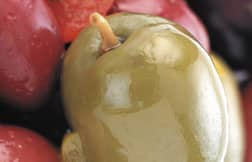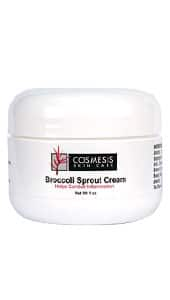
Newsletter
Newsletter
Study Links Olive Oil Consumption With Decreased Risk Of Dying
Study links greater olive oil consumption with decreased risk of dying over 13 year period
Friday, June 8, 2012. A study described in an article published online on May 30, 2012 in the American Journal of Clinical Nutrition found an association between greater olive oil intake and a lower risk of dying over an average of 13.4 years of follow-up. Spanish researchers analyzed data from 40,622 men and women residing in Spain who were aged 29 to 69 years upon recruitment to the European Prospective Investigation into Cancer and Nutrition (EPIC-Spain). Interview responses concerning foods and drinks typically consumed were analyzed for olive oil and caloric intake. Over a follow-up period beginning in 1992-1993 and ending 2006-2009, there were 416 deaths from cardiovascular disease, 956 cancer deaths and 417 deaths from other causes. Cause of death was not determined for 126 subjects. Participants whose olive oil intake was among the top one-fourth of participants had a 26 percent lower risk of dying of any cause and a 44 percent lower risk of dying from heart disease compared to those who did not consume olive oil. While there appeared to be no protection conferred by olive oil against the risk of dying from cancer, the risk of mortality from causes other than cancer or heart disease was reduced by 38 percent for those whose olive oil intake was greatest. However, the authors remark that there is evidence that olive oil may be protective against specific types of cancer, particularly breast cancer. Olive oil contains monounsaturated fatty acids, vitamin E and phenolic compounds, all of which may play a role in the protection against chronic diseases including cardiovascular disease. The authors note that olive oil has been shown to improve systemic inflammation and glycemic control in randomized clinical trials. "To our knowledge, this is the first prospective study to show that olive oil consumption reduces the risk of mortality in a healthy Mediterranean population," the authors announce. "Our findings provide further evidence on the effects that one of the key components of the Mediterranean diet has on mortality and support the need to preserve the habitual use of olive oil within this healthy dietary pattern. This is especially important in light of the progressive loss of the Mediterranean diet and the increased intake of saturated fatty acids across many Mediterranean Countries."
| ||||||||||||||||||||||||||||||||||||||||
 | ||||||||||||||||||||||||||||||||||||||||
| ||||||||||||||||||||||||||||||||||||||||
 | ||||||||||||||||||||||||||||||||||||||||
| ||||||||||||||||||||||||||||||||||||||||
AdipoStat is a proprietary ingredient derived from natural plant extracts exclusively distributed by InterHealth N.I. UC-II® is a registered trademark of InterHealth Nutraceuticals, Inc. U.S. Patent Nos. 5,645,851, 5,637,321, 5,529,786, 5,750,144, 7,083,820, 7,846,487, EP1435906 B1 and worldwide patents pending. | ||||||||||||||||||||||||||||||||||||||||
The latest news on aging, nutrition, and vitamins
Lab
Testing
How Life Extension lab testing works









